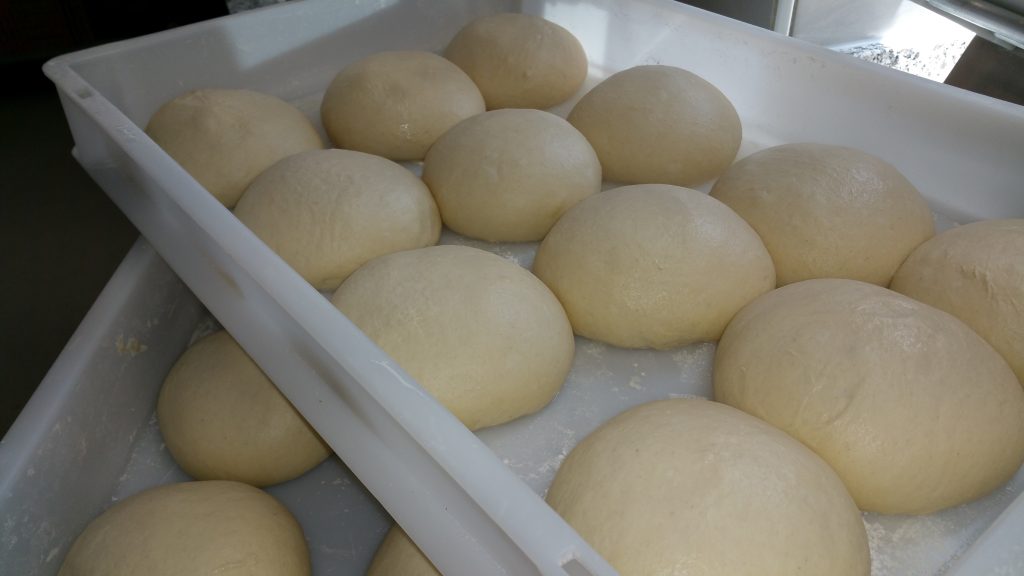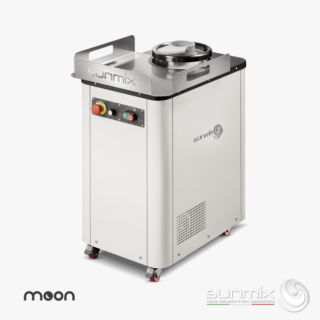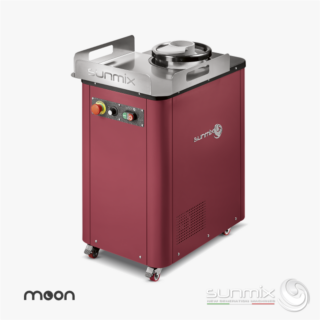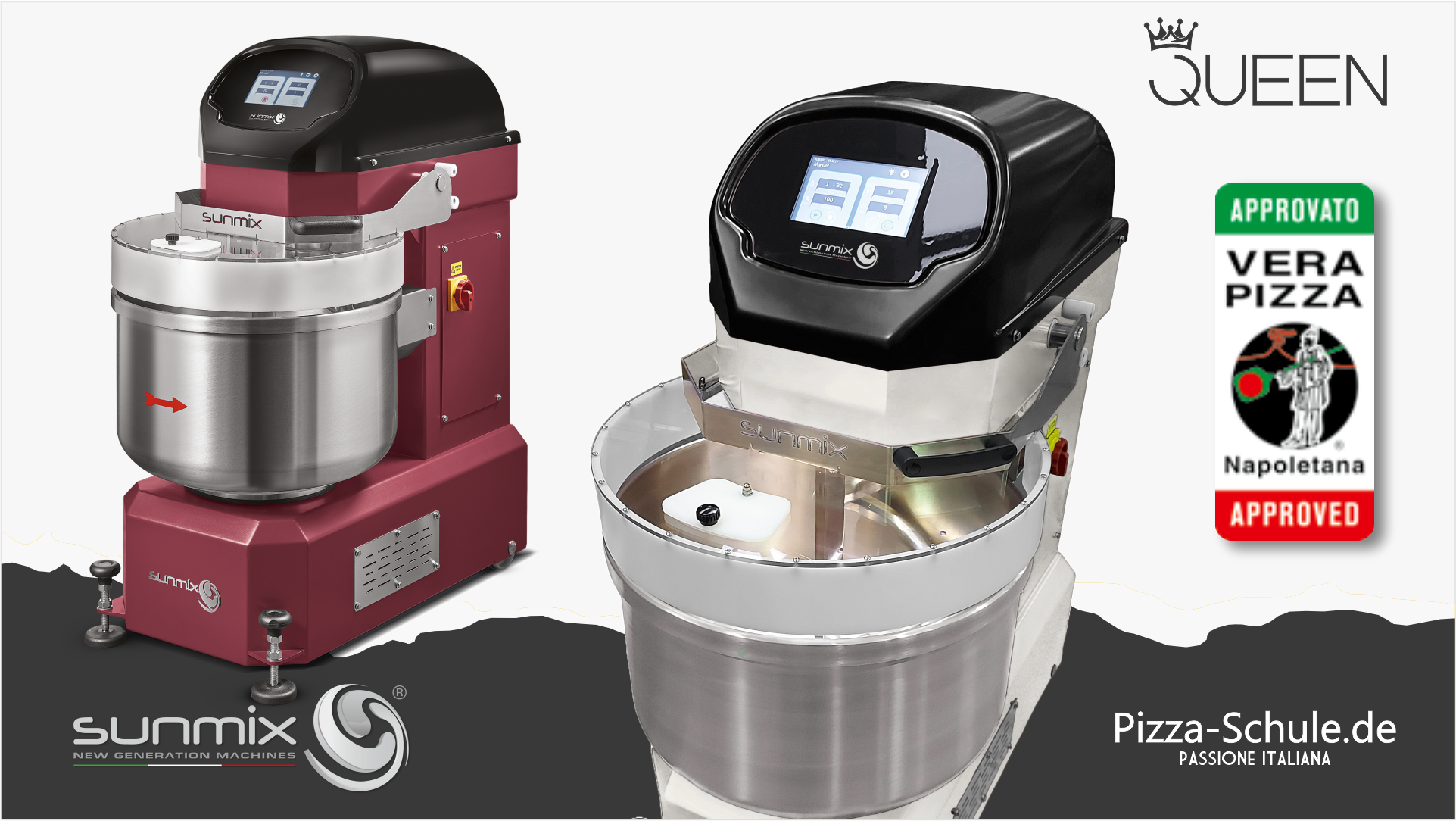The Fermentation of Pizza: Why Is It So Important?

Pizza Fermentation: The Art of the Pizzaiolo
Pizza Fermentation – In the preparation of pizza, it is crucial to pay attention to the dough’s fermentation to ensure a perfect balance. This slow process ensures the correct consistency and aromatic properties of the pizza dough. What is this slow process? And, above all, what should be considered to achieve the correct fermentation of the dough? Let’s find out together.
A crucial component for achieving a homogeneous and soft dough, which is the perfect base for every type of pizza, is the use of a professional mixer like the Sunmix, designed to ensure maximum uniformity and the right consistency of your dough.
What is pizza fermentation?
It is believed that the process of fermentation was discovered by pure chance. It is said that once, a dough of water and flour was forgotten and left to rest for several days in a dark and warm place. Despite this, it was later worked, achieving a unique result: the softness and aroma were surprisingly superior to the original dough.
Over the years, the fermentation process has been analyzed to understand the forces at its base. This led to the discovery that fermentation is facilitated by the activity of microorganisms, the Saccharomyces cerevisiae, commonly called yeast, which are naturally found in many foods.
These microorganisms, during the dough’s rest, release carbon dioxide, causing the dough to rise. This creates a structure anchored in the gluten network formed by the worked dough.
Yeasts also play a significant role in everyday nutrition: they are used in the production of beer and wine, as well as in baking. But in our case, we ask: how to promote the correct fermentation of pizza and what should be considered?
How to promote proper pizza fermentation
Once the importance of correct fermentation is understood, it seems impossible to produce a truly good pizza without it. Therefore, it is essential to understand the mechanism well in order to reproduce the natural conditions that promote the fermentation process of pizza. To facilitate the fermentation process of yeasts — present both in brewer’s yeast and in sourdough — the dough needs a good amount of water, a limited amount of oxygen, an adequate room temperature — between 15 °C and 60 °C — and nutrients, particularly sugars and starches.
By following these recommendations, you can create the ideal conditions for proper pizza dough fermentation. Finally, it is crucial to pay attention to the correct timings. So: How long should pizza dough ferment?

What is the ideal rest time for pizza?
It is well known that pizza dough requires a lot of time to ferment, as the microorganisms in the dough need enough time to multiply and rise. The reproduction of yeasts occurs on average every 20 minutes, and fermentation begins when the oxygen level decreases. The reduction of oxygen allows the yeasts to produce carbon dioxide and a small amount of alcohol, which evaporates during cooking. Therefore, it is essential to use a suitable container for fermenting pizza dough: generally, containers made of rigid plastic or wood are used, as these materials support the fermentation process.
Place these containers in the refrigerator at a maximum temperature of 4 °C and let the dough ferment for about 12 hours. At room temperature, however, fermentation times are shorter, taking about 4 hours.
Moreover, it is important to emphasize that brewer’s yeast is the most suitable for pizza. It is available commercially both fresh in cube form and dried, which represents the ideal form of yeast for long fermentation doughs. This type of yeast is also used in brewing beer. Sourdough can also be used for pizza preparation, although it is more suitable for products that are consumed several days after cooking, like bread, for example.

Attention in the choice of flour for pizza fermentation!
The choice of flour for the dough is fundamental to the fermentation process. Each type of flour, whether 0 or 00, has its own “strength” which determines the ability to absorb liquids and the capacity to retain the carbon dioxide produced by the yeasts, thus promoting proper fermentation. In general, the less yeast used in the dough, the longer the fermentation process will be.
Now that you know the basics of the fermentation process — which once seemed like magic — all you have to do is prepare your pizza dough with a long fermentation using the best ingredients. By paying attention to the fermentation process, you can offer your guests a unique taste and texture experience, while also ensuring excellent digestibility.





















Leave a Reply